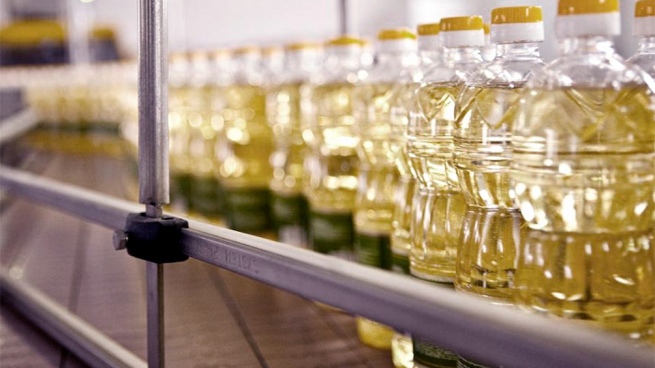The international prices of vegetable oils, especially sunflower and soybeans, were two of the industrialized agricultural products that rose sharply after the war between Russia and Ukraine broke out, with increases of more than 20%.
According to Rosario Stock Exchange (BCR)since the beginning of the war conflict, on February 24, soybean oil prices in the Chicago market increased by almost 25% going from US$ 1,587.30 to US$ 1,965 at the close of last Friday, while the FOB export price of Argentine sunflower oil rose 21%, from US$ 1,660 to US$ 2,015 in the same period.
The reason that triggered the rise in these products was the Russian invasion of Ukraine, which in addition to the humanitarian and economic disaster it generated, also paralyzed the oil industry and the movement of ports on the Black Sea, which withdrew production from the market. of sunflower oil from that area, which together represent 80% of the volume sold worldwide.
This not only triggered the price of sunflower oil, but also those that are substitutes, such as soybean, palm or corn.
“The greatest effect of the war was on sunflower oil, because 80% (of world supply) disappeared and at that moment, the price flew from US$1,500 to US$2,200”The president of the Chamber of the Oil Industry and the Cereal Exporters Center (Ciara-CEC), Gustavo Idígoras, told Télam.
This rise in prices affects not only the exports of the sunflower complex, but also the contribution it makes to the Argentine economy.
According to a report from the Buenos Aires Cereal Exchange (BCBA), The Gross Agricultural Product (PBA) of the complex would reach the record amount of US$ 1,909 million in the current 2021/22 campaignUS$ 217 million above what was registered in the last cycle, with an expansion of 12.8%.
Regarding exports, the entity projected income of US$ 1,202 million, which will represent an increase of 18.2% (US$ 185 million), while the collection for withholdings will have an increase of US$ 69 million to US$ $426 million.
Likewise, the entity calculated that of the 3.4 million tons recently harvested, 3 million will be ground mainly for the production of oil, so that 750,000 tons would be available for export, some 50,000 tons less than in the 2020/21 campaign. .
That volume, Idígoras indicated, represents 8% of the world market, “and it was the only sunflower oil that remained available after the disappearance of the Ukrainian supply and, unfortunately, it could not be met and world demand remained unsatisfied.”
Faced with this situation, the business leader sees “an enormous opportunity for the Argentine sunflower chain, with good prices and an unsatisfied market”, which could determine a growth in the area implanted with said crop, whose surface in the last campaign was 1 .7 million hectares.

On the side of soybean oil, the rise in international prices, around 25%will also have a positive impact on Argentine exports.
According to the latest BCR Market Outlook report, shipments of this product would climb to US$7,733 million this year, US$632 million more than last year and US$330 million above what was expected in the estimates last month of the stock market entity.
However, the BCR economic team stressed that “the current withholding policy could discourage industrialization and foreign trade of products from the soybean complex” which “could limit the capture of this price level.”
The stock market entity explained that the demand for soybean oil in recent times “was supported in part to replace the shortage of sunflower oil”, an issue that not only boosted the prices of this sub-product in question, but that of the entire soy complex.
To this was added that in recent days, Indonesia announced suspension of palm oil exportsanother substitute product.
This Southeast Asian country is responsible for more than half of global exports of this oil and was on its way this year to represent 56% of world exports of palm oil, said the BCR, so “to the uncertainty of global supply is added to the regulatory uncertainty in this country”.
“This is another factor that underpins prices, in view of the potential increase in demand for soybean oil to replace palm, as was seen with sunflower,” concluded the analysis of the Rosario Stock Exchange.


















